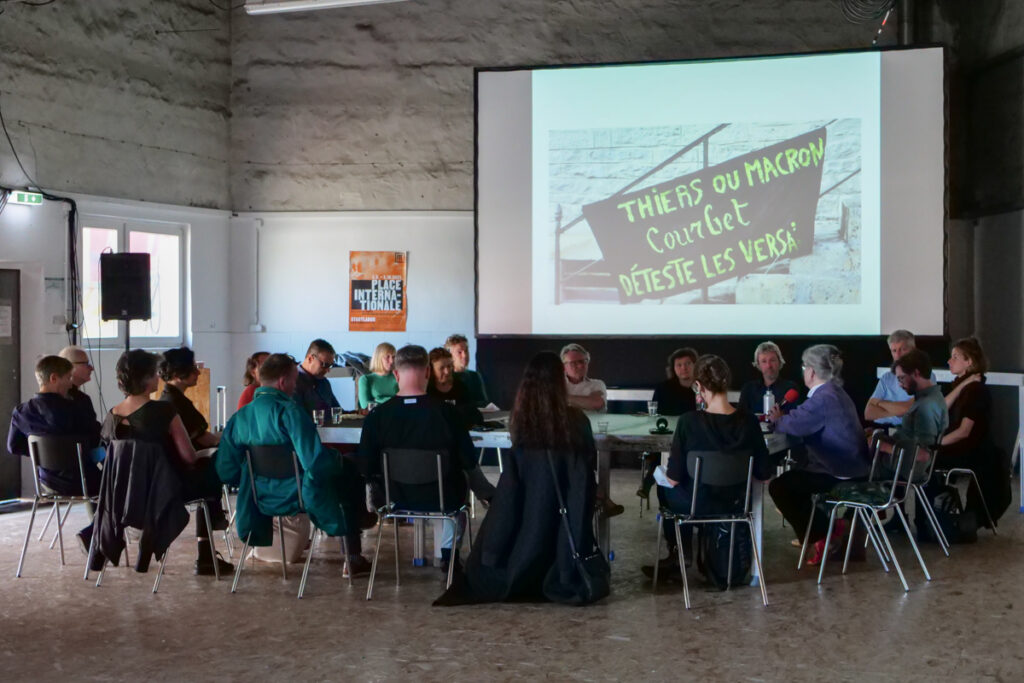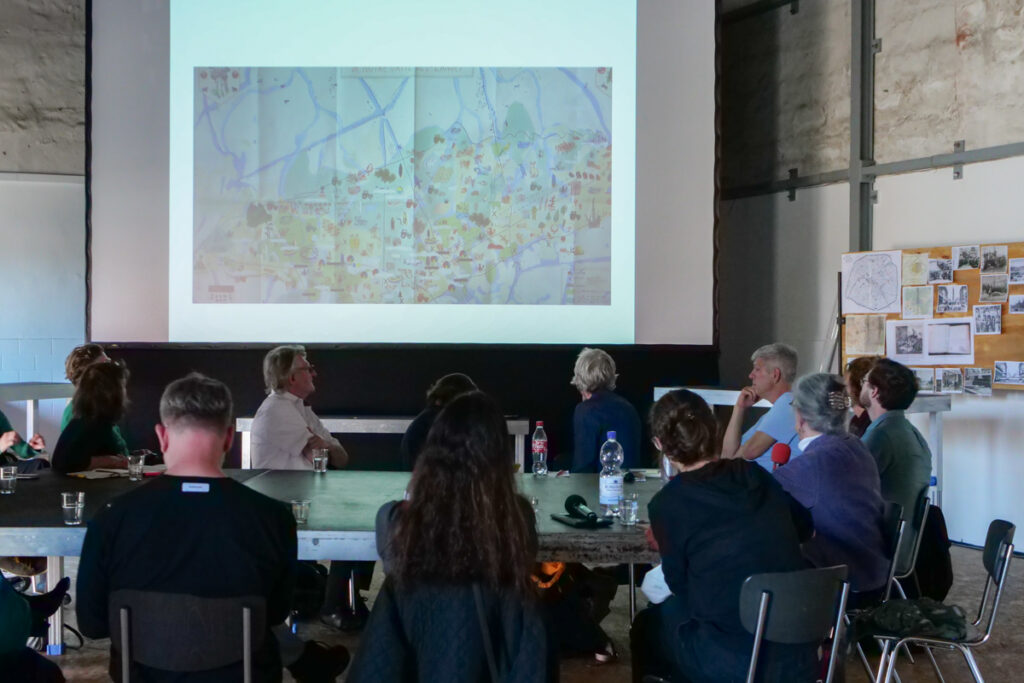Lecture and Seminar
Based on examples for communal practices in political struggles of today, with special emphasis on the ZAD at Notre-Dame-des-Landes as a case study, Kristin Ross will present and discuss “the commune-form today”. The emphasis lies on the ZAD at Notre-Dame-des-Landes as a case study: The ZAD is an occupation movement protesting against the project of the building of a new airport near the Far-Western-France city of Nantes that started in 2008. Activists then tried to organise themselves with former inhabitants and famers to live there on this natural and farming area.
Following the lecture there will be time to elicit questions and discussion from those who wish to engage with the issues raised by their readings of Communal Luxury as well as those who wish to connect to the discussion through current struggles (or both!).


For an introduction about the ZAD:
Oliver Ressler: Everything’s coming together while everything’s falling apart: The ZAD
Kristin Ross (born 1953) is Professor Emeritus of Comparative Literature at New York University. She is best known for her work on 19th, 20th and 21st century French literature and culture. Ross received her Ph.D. from Yale University in 1981 and has since written a number of books including The Emergence of Social Space: Rimbaud and the Paris Commune (1988), Fast Cars, Clean Bodies: Decolonization and the Reordering of French Culture (1995), and May ’68 and its Afterlife (2002). In 2015 her book Communal Luxury: The Political Imaginary of the Paris Commune was published. For Fast Cars, Clean Bodies, Ross received a Critic’s Choice Award and the Lawrence Wylie Award for French Cultural Studies. Professor Ross has also received a Guggenheim Fellowship and a fellowship from the Institute for Advanced Study in Princeton, New Jersey. Ross has also translated several works from French, including Jacques Ranciere’s The Ignorant Schoolmaster. In addition to her research interests in French political culture and literature, Ross‘ work gains its focus from her interest in urban and revolutionary history, theory, politics, ideology and popular culture.